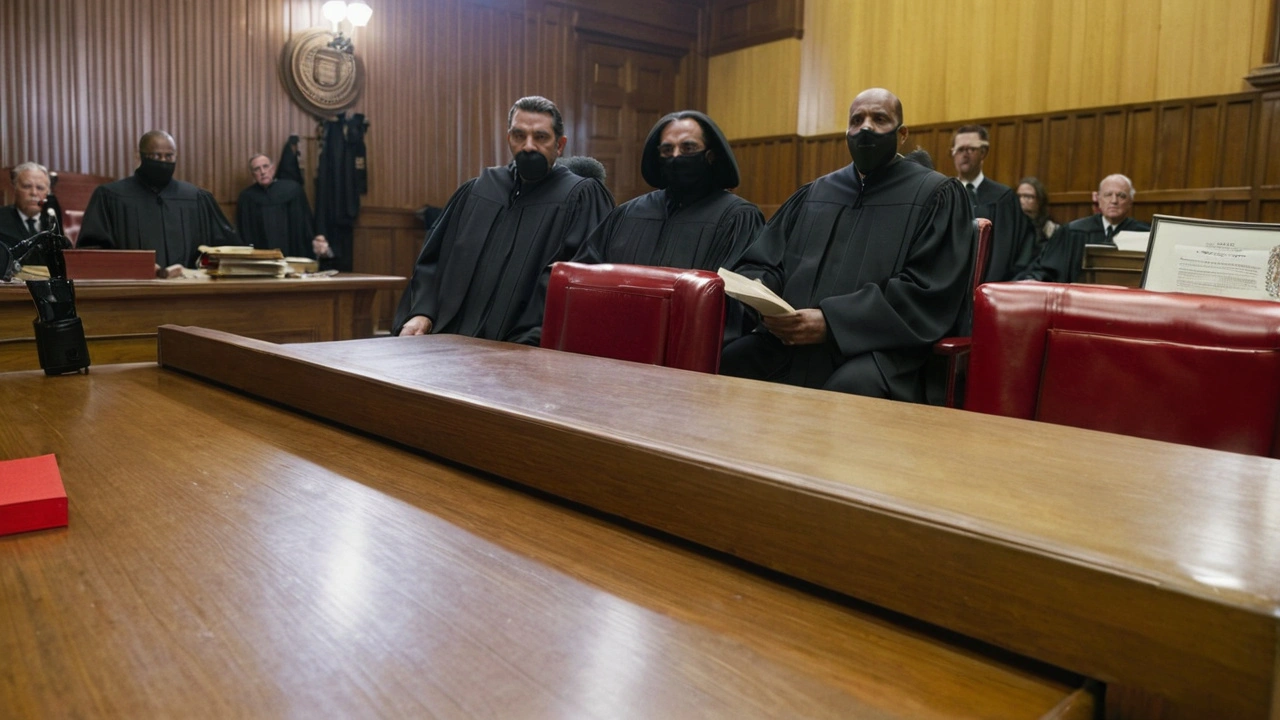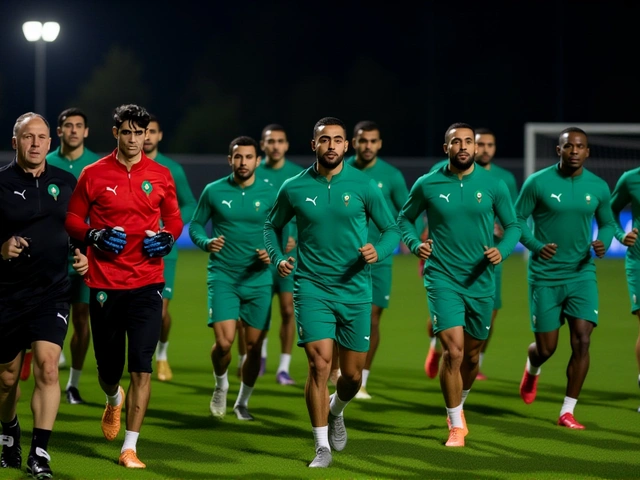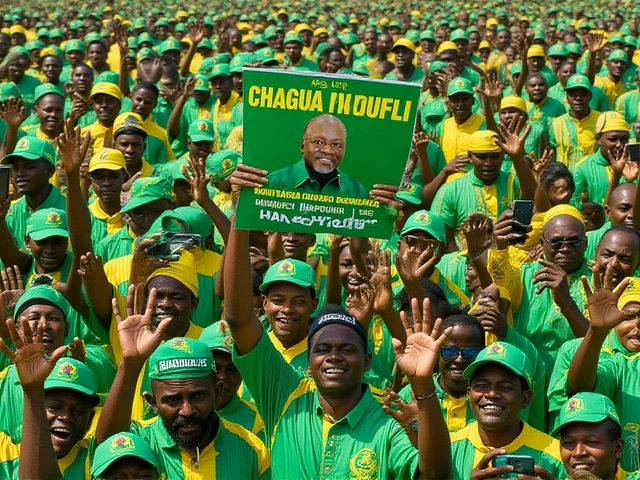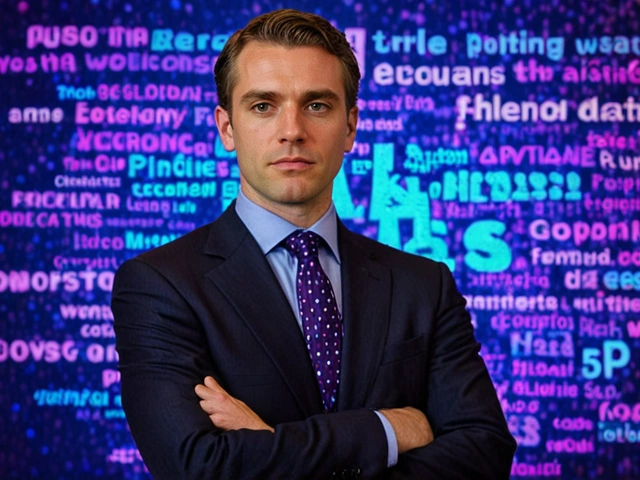Senzo Meyiwa Murder Trial: Defence Criticizes State's Cellphone Evidence Amid Cross-Examination

Senzo Meyiwa Murder Trial: Defence Criticizes State's Cellphone Evidence Amid Cross-Examination
The Senzo Meyiwa murder trial resumed on Monday, July 22, 2024, following a four-month recess. The anticipation surrounding the trial was palpable, as both the prosecution and defence prepared for the next intense chapter in one of South Africa's most high-profile cases. This trial has continued to evoke public interest due to the tragic circumstances surrounding the death of Senzo Meyiwa, a beloved soccer star, and the intricate web of evidence and testimonies that have emerged.
Questioning the Cellphone Evidence
Cellphone evidence has become a cornerstone of modern criminal investigations, often revealing crucial details about the whereabouts and actions of individuals. In this trial, however, the defence team led by Thulani Mngomezulu has taken a critical stance on the cellphone data presented by the prosecution. Their argument is fundamentally rooted in the distinction between a device and its owner, a point that has significant implications for the accused.
During the resumed proceedings, Pinky Vythilingam, a forensic supervisor from Vodacom, took the stand to testify regarding the cellphone data. As she presented the evidence, the defence wasted no time in challenging the reliability and interpretation of this information. Mngomezulu's cross-examination was meticulous, raising critical questions about how the data was collected and the inferences drawn from it.
The Case of Longwe Thwala
One of the pivotal moments in the defence's argument came with the example of Longwe Thwala. On the day Senzo Meyiwa was tragically killed, Thwala used his father's cellphone, a detail that the defence argued complicates the prosecution's narrative. Mngomezulu emphasized that the presence of a device at a specific location does not definitively place its owner at that same location. This argument gained traction as the defence meticulously dissected the chain of custody and the potential for misinterpretation of the data.
The defence's assertion has broader implications, particularly for the second accused, Bongani Ntanzi. Ntanzi's phone had recorded calls and messages during a period when he was reportedly in police custody. This discrepancy has opened a Pandora's box of questions, casting doubt on the ability to conclusively link the accused to the crime scene based solely on cellphone data.
Forensic Expert Testimony
As Vythilingam faced an intense cross-examination, the courtroom became a battleground for technical details and interpretational nuances. The forensic expert maintained her composure, methodically explaining the processes and methodologies used to analyze the cellphone data. She cited industry standards and best practices, aiming to reinforce the credibility of her findings.
However, Mngomezulu continued to probe deeper, seeking any potential inconsistencies or oversights. He questioned whether the data could have been manipulated or if there were gaps in the record-keeping process. Vythilingam remained steadfast, asserting the integrity of the data collection and analysis process while acknowledging the inherent limitations of relying solely on electronic records.
Impact on the Accused
The defence's strategy has brought some much-needed perspective to the courtroom. By highlighting the nuances and potential pitfalls of cellphone evidence, Mngomezulu aims to create reasonable doubt regarding the prosecution's case against the accused. The case of Bongani Ntanzi, in particular, demonstrates the potential for discrepancies and the importance of corroborating evidence before drawing definitive conclusions.
This line of questioning has also underscored the defence's broader goal: to challenge the narrative put forth by the prosecution and to underscore the complexities involved in modern forensic investigations. For the families and friends of the accused, these proceedings represent a vital opportunity to seek justice and clarity amid the chaos that has surrounded this case.
Looking Ahead
As the trial progresses, the examination of cellphone evidence will continue to play a significant role. With each session, it becomes increasingly clear that the interplay between technology, human behavior, and the law is intricate and multifaceted. The courtroom exchanges offer a fascinating glimpse into how justice is pursued in an age of rapid technological advancement and meticulous digital record-keeping.
The public and media will undoubtedly remain captivated by the unfolding drama of the Senzo Meyiwa murder trial. The defence's rigorous challenge to the cellphone evidence has injected fresh dynamics into the case, ensuring that every piece of evidence is scrutinized with the utmost care. In the end, only a comprehensive and nuanced understanding of all the facts will guide the path to justice.
This trial is a reminder of the profound impact that forensic science and digital technology have on the justice system. It highlights the need for continual advancements in how evidence is collected, interpreted, and presented in court. As both sides prepare for further testimony and cross-examination, the truth behind Senzo Meyiwa's tragic demise remains the ultimate goal for all involved.






Anthony Morgano
July 22, 2024 AT 23:25Wow, the defence really drilled into that cellphone data like a detective on a treasure hunt :) It’s refreshing to see them point out that a phone isn’t a perfect GPS tag for its owner. The Longwe Thwala example shows how easy it is to misread digital footprints. If you think the data alone can seal the case, you might be missing the bigger picture of human behavior. Props to the team for keeping the focus on reasonable doubt!
Holly B.
July 27, 2024 AT 14:32The argument presented highlights a fundamental principle in evidentiary law the correlation between device and user must be established beyond doubt the court should scrutinize the chain of custody and the methodological rigor of the forensic analysis
Lauren Markovic
July 31, 2024 AT 01:52Just to add a bit of context the way cell‑tower triangulation works it can pinpoint a device within a few hundred meters under ideal conditions however obstacles like buildings or signal interference can skew results 🙂 It’s also worth noting that most forensic labs follow ISO‑17025 standards for data integrity which adds a layer of credibility to the findings
Kathryn Susan Jenifer
August 2, 2024 AT 09:25Oh brilliant, because a phone “maybe” was there it automatically proves innocence, right? It’s like saying a misplaced sock proves you didn’t steal the shoes – charmingly simplistic and utterly absurd.
Jordan Bowens
August 4, 2024 AT 03:05Another day, another tech‑talk that feels like recycled hype.
Kimberly Hickam
August 5, 2024 AT 12:25When we dissect the epistemology of digital forensics we must first acknowledge that data, in its raw form, is a silent witness devoid of intent, and only through interpretive frameworks do we bestow upon it evidential weight. The prosecution’s reliance on cell‑tower logs presupposes an infallibility that is philosophically untenable because every dataset emerges from a cascade of human‑engineered processes, each susceptible to error. Consider the hardware itself: antennas can suffer from transient faults, firmware can misrecord timestamps, and software updates can retroactively alter log structures, thereby introducing a layer of uncertainty that the courtroom narrative often omits. Moreover, the legal doctrine of “chain of custody” is not a mere procedural checkbox but a rigorous protocol designed to guard against contamination, yet the defence has already highlighted gaps in the documentation that could plausibly fracture that chain. If a device was borrowed, as in the Longwe Thwala scenario, the ontological link between the physical object and the alleged perpetrator becomes a metaphysical puzzle rather than a straightforward identity proof. The same principle applies to the Ntanzi phone; a recorded call does not, by itself, confirm the owner’s location at the moment of the call without corroborative geospatial data. Additionally, one must interrogate the statistical models employed by the forensic analyst – are they Bayesian, frequentist, or a hybrid, and what prior assumptions are baked into those calculations? The expert’s assertion of methodological soundness would benefit from a transparent exposition of those parameters, lest the courtroom be swayed by jargon rather than substance. It is also crucial to recognize that digital footprints can be deliberately obfuscated; anti‑forensic tools exist precisely to inject noise and mislead investigators, and the mere presence of such tools in a jurisdiction’s cyber‑crime toolbox should raise a flag. The defense’s strategy, then, is not merely a rebellion against technology but a call for epistemic humility, reminding us that evidence must be weighed against the backdrop of its inherent limitations. It is a broader sociotechnical context, this case exemplifies the tension between an increasingly data‑driven legal system and the timeless principle that guilt must be proven beyond a reasonable doubt. Consequently, the trial should not become an arena where the veneer of scientific certainty eclipses the fundamental safeguards of due process. As scholars of law and technology continually argue, the law must evolve in tandem with forensic capabilities, but it must do so with a measured, critical eye. Ultimately, the court’s decision will hinge not on the allure of glowing screens but on the rigorous interrogation of each evidentiary strand, ensuring that justice is served not merely efficiently but accurately.
Gift OLUWASANMI
August 6, 2024 AT 16:12The prosecution’s darling data is nothing more than a digital mirage crafted by over‑zealous analysts who love to dress up raw numbers in a tuxedo of certainty. Their “state‑of‑the‑art” methodology reeks of hubris, ignoring basic principles of signal degradation and human error. It’s a classic case of techno‑chauvinism where the glitter of graphs blinds the mind to the underlying fragility of the evidence.
Keith Craft
August 7, 2024 AT 13:52My dear colleagues, the very soul of justice quivers under the weight of this manufactured narrative! How could we allow cold circuitry to dictate the fate of a mortal soul? The courtroom must not become a theater for silicon‑driven tragedies, lest we consign humanity to the whims of a binary god!
Kara Withers
August 8, 2024 AT 09:19To provide a balanced view it’s helpful to remember that corroborating physical evidence-such as DNA or eyewitness testimony-remains the cornerstone of a robust case. Digital traces should supplement, not supplant, these traditional elements, ensuring a holistic assessment of the facts.
boy george
August 9, 2024 AT 01:59Elegant analysis demands restraint in both language and punctuation
Cheryl Dixon
August 9, 2024 AT 15:52While many celebrate the prowess of modern forensics, it is worth pondering whether our faith in technology might inadvertently eclipse the timeless virtues of human intuition and moral judgment.
Ramesh Modi
August 10, 2024 AT 04:05Behold! The courtroom becomes an altar where the altar‑boys of data are worshipped, and the true seekers of truth are relegated to shadows!!! Let us not be seduced by the siren song of algorithms, for they are but tools, not the arbiters of justice!!!